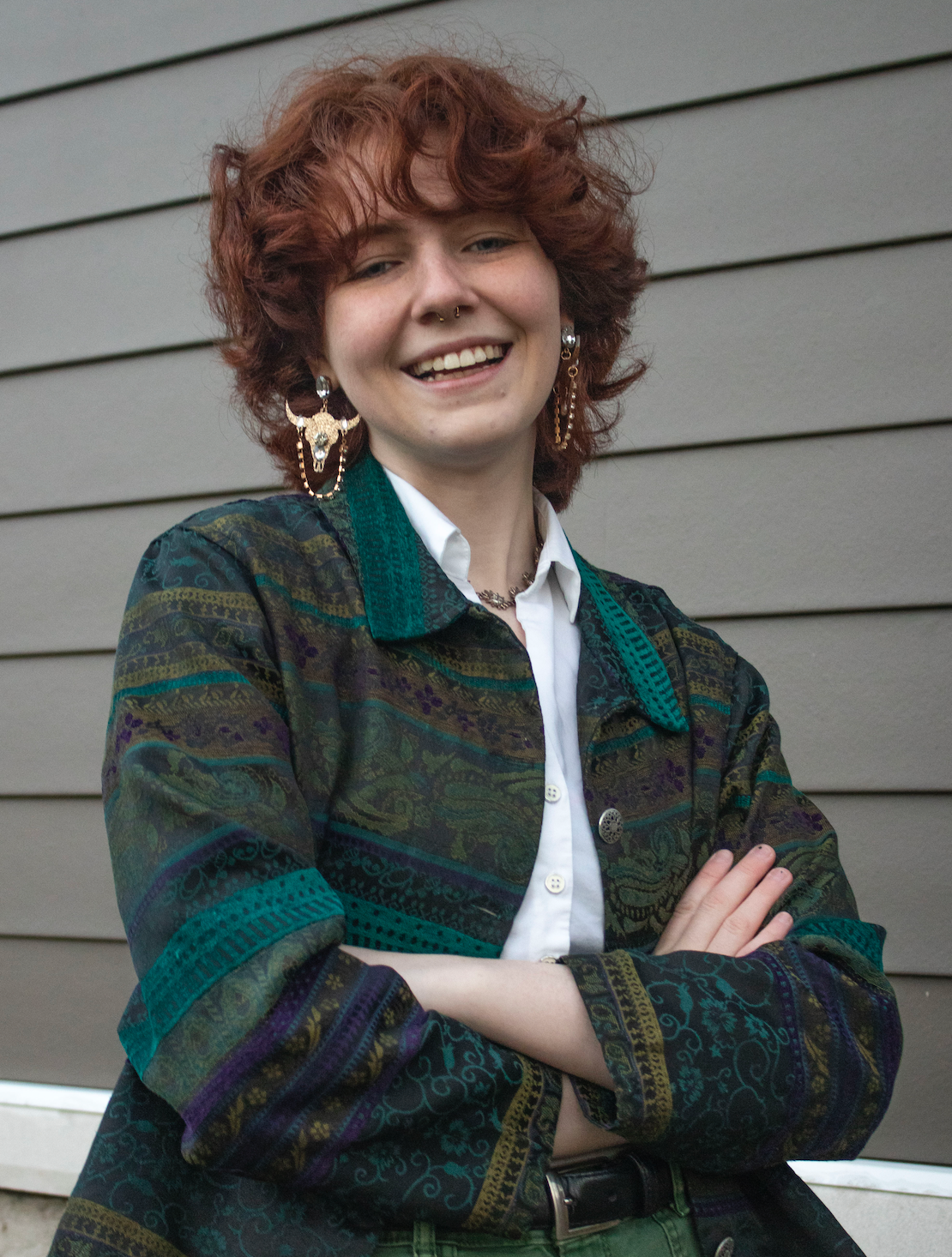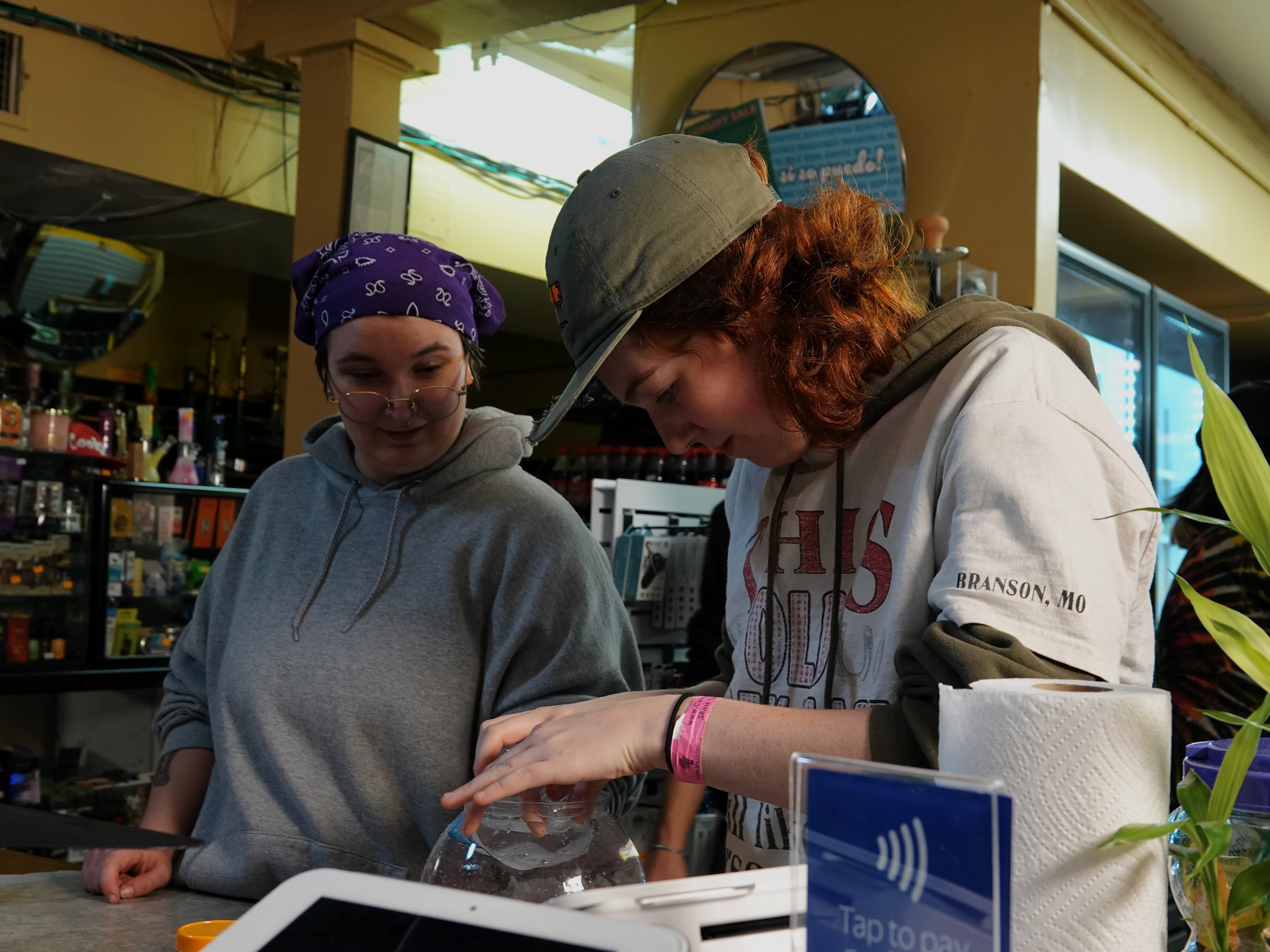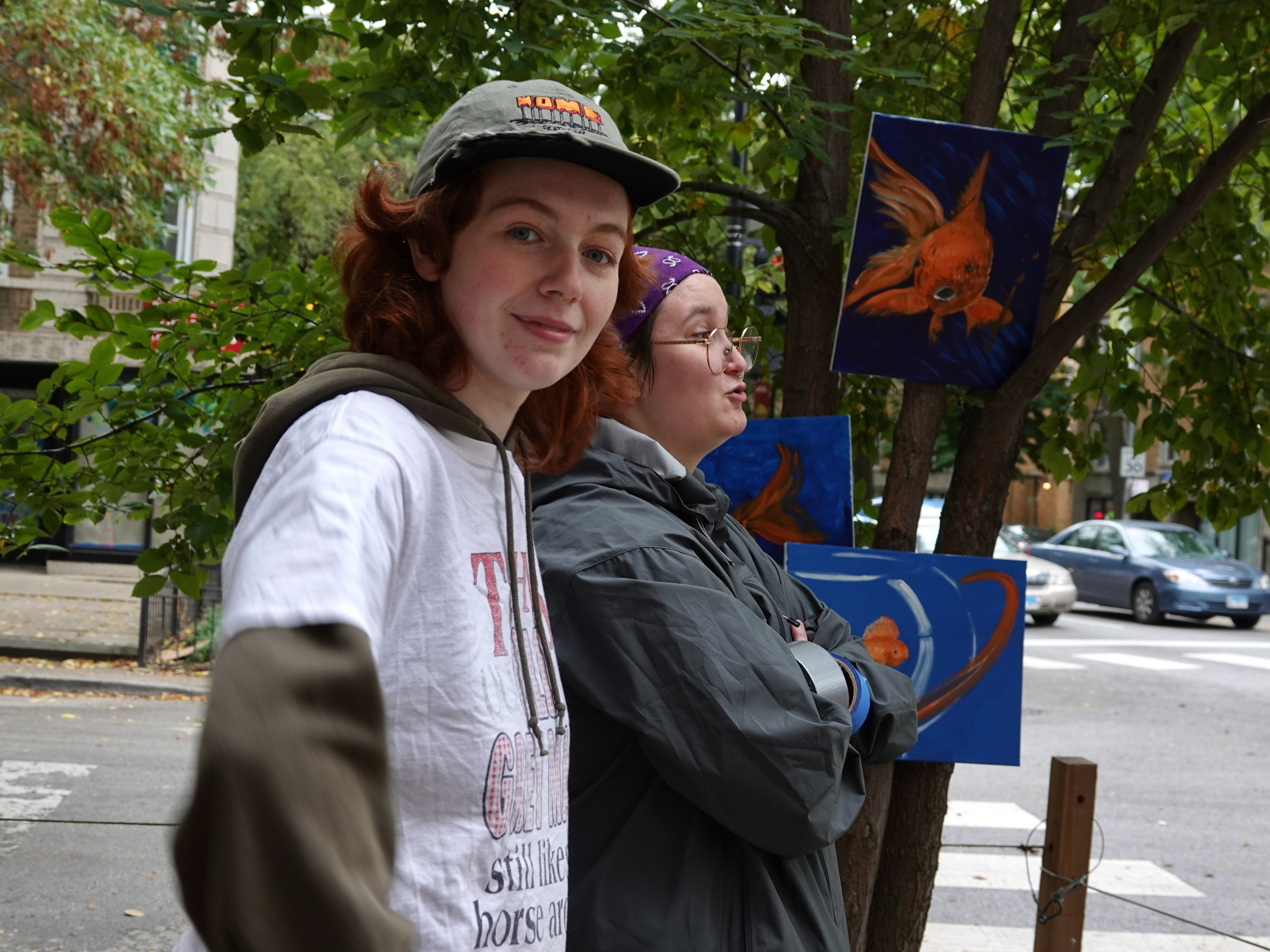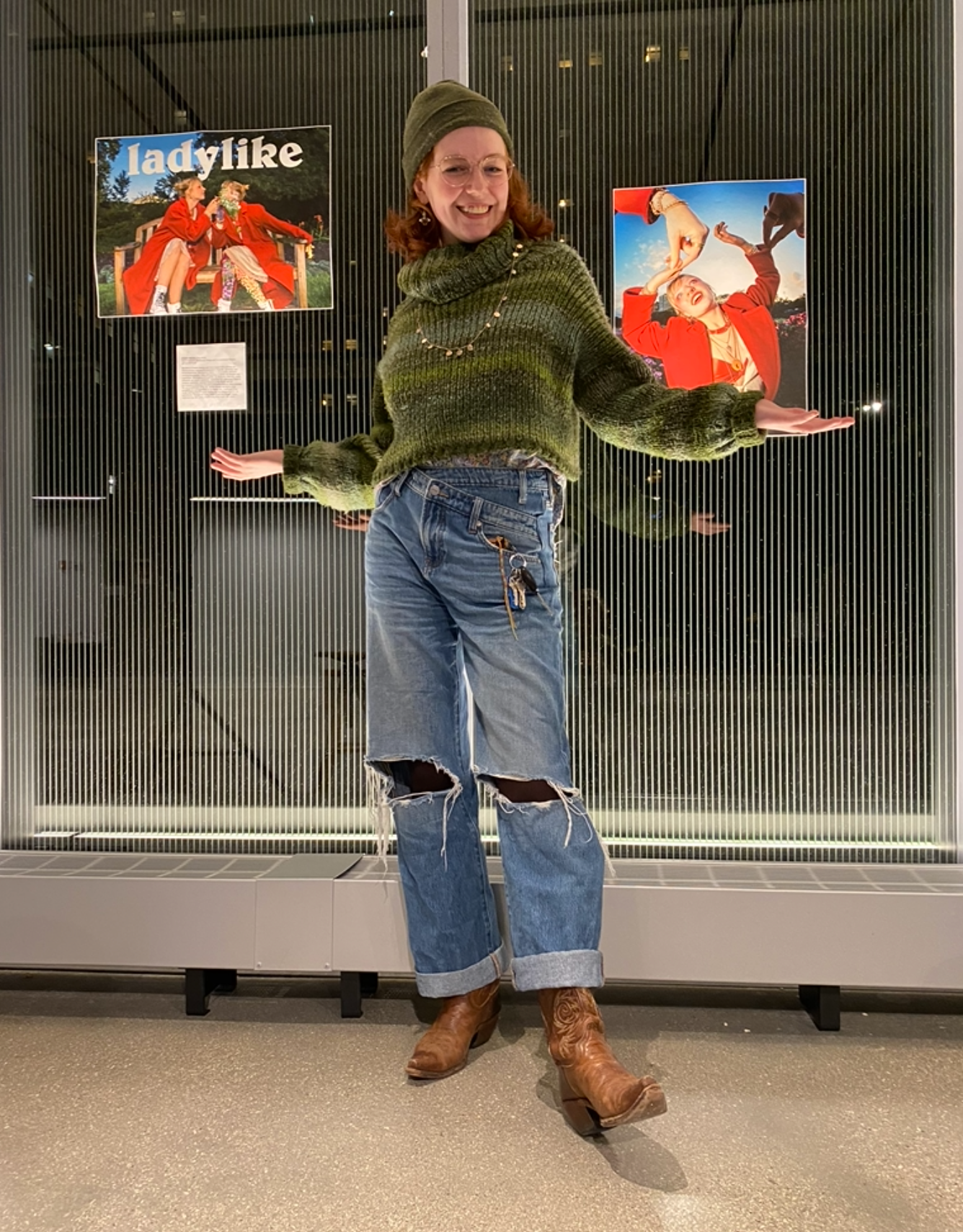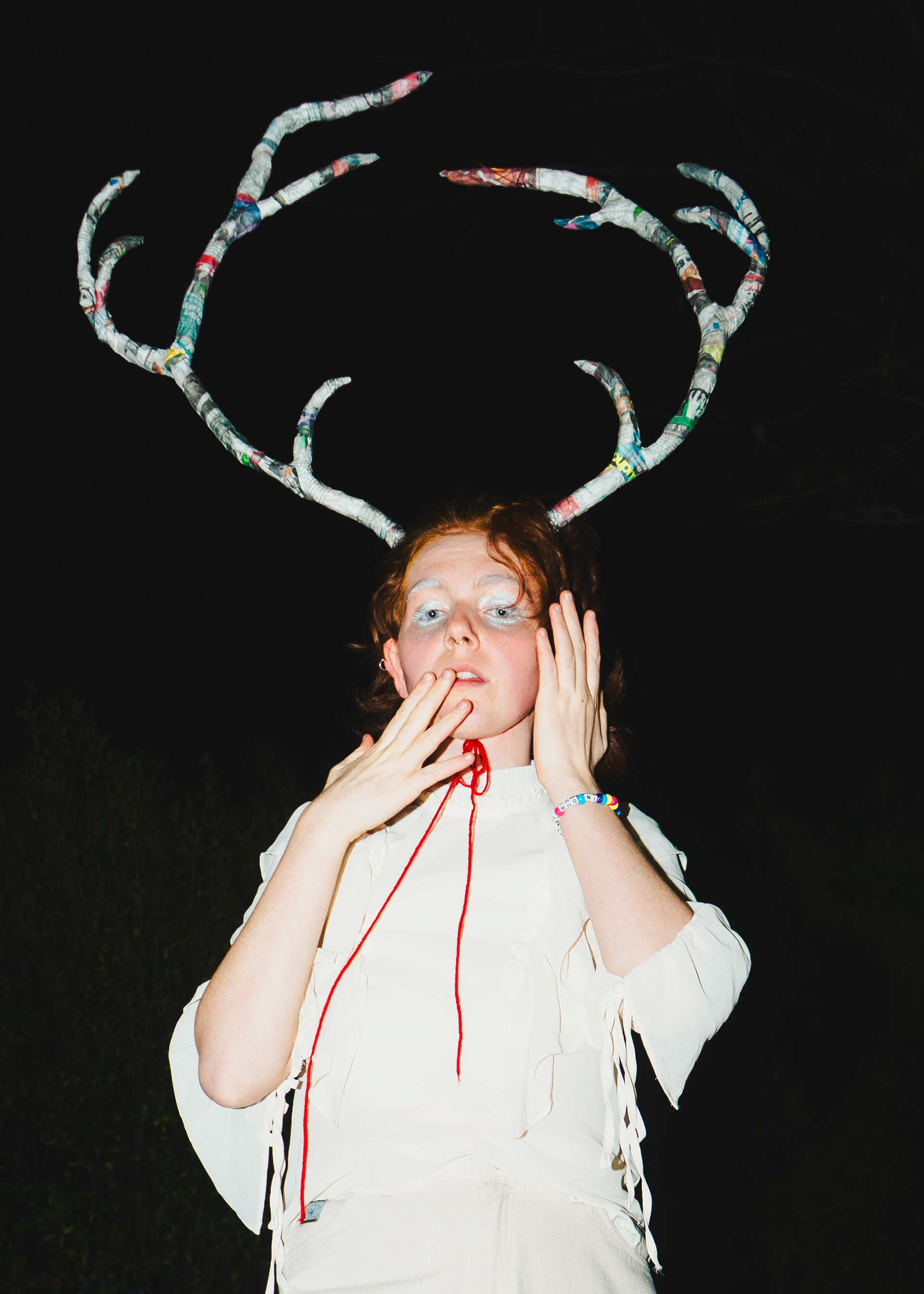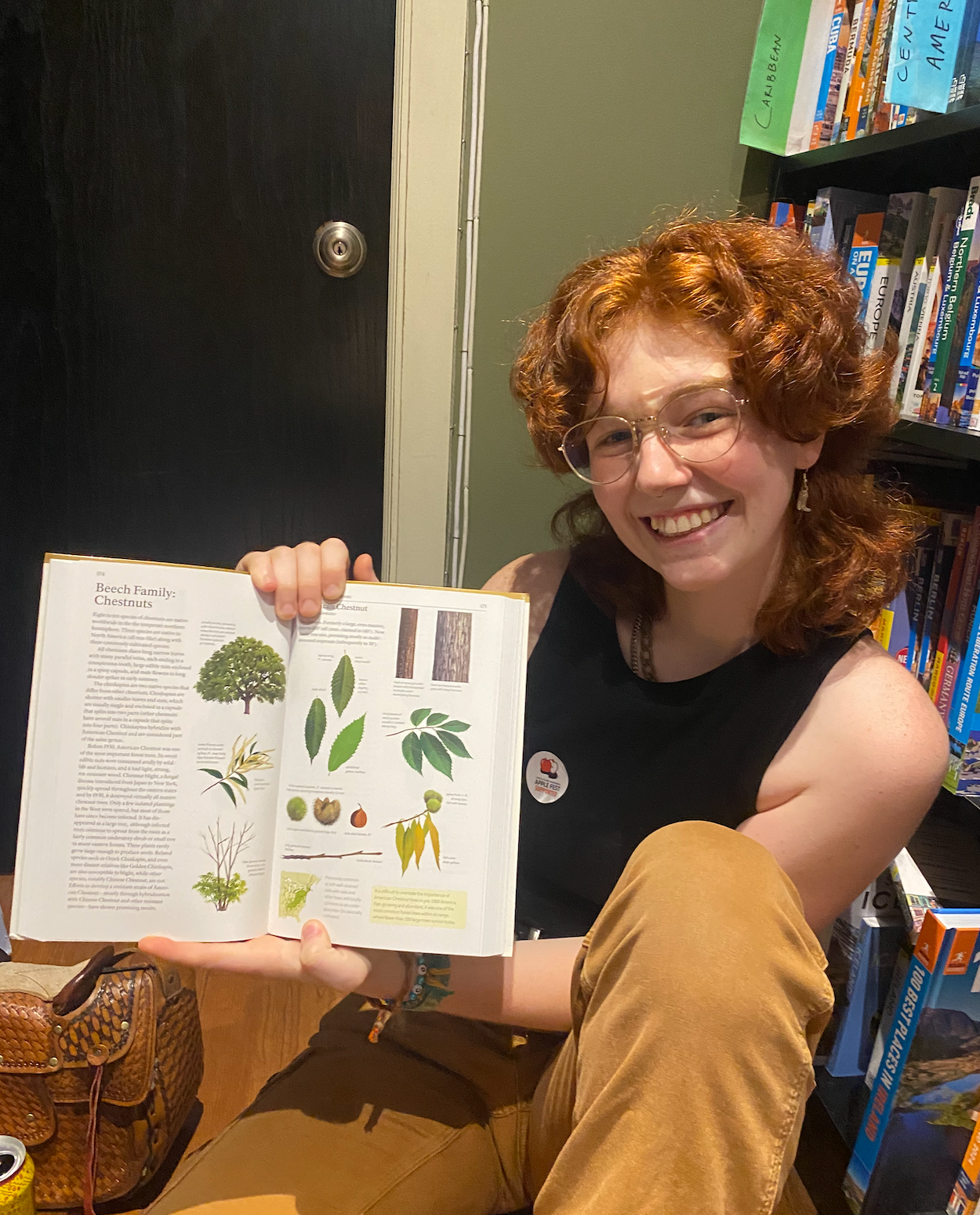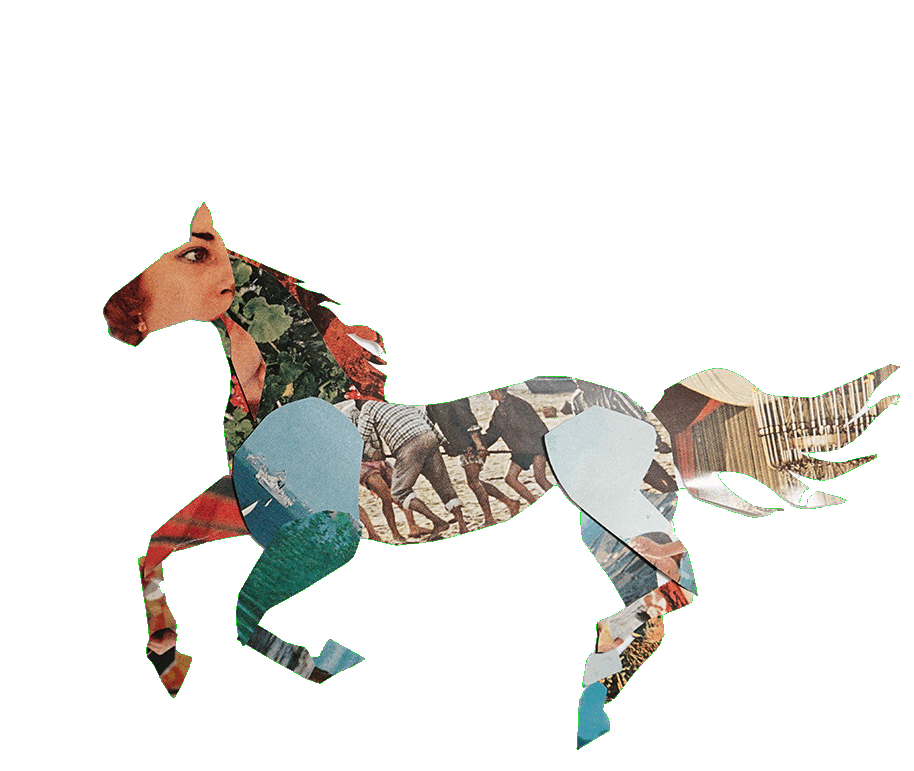Frankie Buente is a senior at Columbia College Chicago, driven by a passion for creating art that delves into the intersection of gender, queerness, and environmentalism. They express themselves through a fusion of mixed media, predominantly employing photography, video, and painting to communicate their thoughts and experiences. Each piece in their portfolio features a distinct balance of media art, yet they strive to maintain a cohesive style across all mediums.
Having grown up in Louisville, Kentucky, Frankie's artistic expression is deeply rooted in their Kentucky heritage. Drawing inspiration from their upbringing, they aim to juxtapose queerness, the nuanced dynamics of the South, and the environment to illustrate a broader relationship between these concepts. Kentucky's horses, Bluegrass hills, and music serve as profound inspirations, influencing their work at its core. Environmentalism takes a forefront in Frankie's art, drawing on their education in environmental science and queer ecofeminist humanities to inform their creative endeavors. Their understanding of southeastern United States species and nature directly influences their work, with the species of their home region being a longstanding inspiration since childhood.
Two influential artists shaping Frankie's work are Chappell Roan and Rebecca Sugar. Despite working in different mediums, the empowering queer narratives and campy storytelling approach of these artists have a profound impact on Frankie. Additionally, the art activism of Beth Stevens and Annie Sprinkle significantly influences how they apply their work to broader environmental conversations. Frankie's goal is to present queer environmentalism education in a visually spectacular, whimsical, and accessible manner.
Their art serves as a reflection of their life and the broader narratives of their generation. It is an exploration of the beauty and complexity of the world, encompassing human identity and our relationship with the environment. Through their work, Frankie aims to provoke thought, foster understanding, and ignite conversations about these vital issues.
